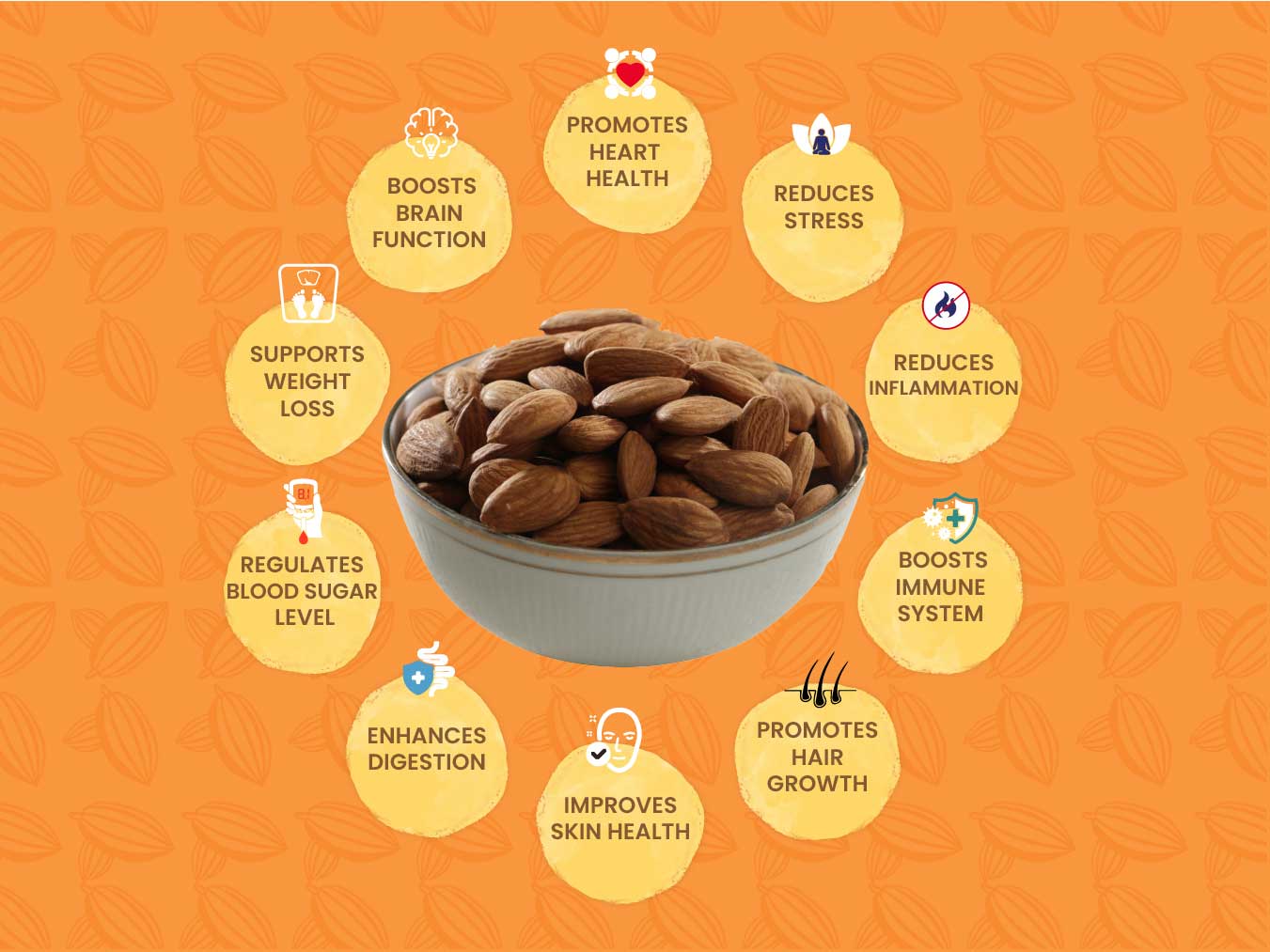“Discover the nutritional benefits of walnuts and almonds in our comprehensive comparison. Explore key differences, health benefits, and which nut might be the best addition to your diet for optimal health and wellness.”
When selecting a healthy snack, walnuts and almonds frequently come to mind due to their well-documented health benefits. However, each nut offers unique nutritional advantages that can influence your dietary choices. In this comprehensive analysis, we’ll delve into the nutritional profiles of walnuts and almonds, explore their distinct health benefits, and provide guidance on which might be the better choice for your personal health goals.
Nutritional Overview
Walnuts Nutritional Value
Walnuts are celebrated for their rich nutrient profile. A typical 1-ounce (28 grams) serving of walnuts includes:
- Calories: 185
- Protein: 4.3 grams
- Fat: 18.5 grams (of which 1.8 grams are saturated fats)
- Carbohydrates: 3.9 grams
- Fiber: 1.9 grams
Walnuts are a standout source of alpha-linolenic acid (ALA), a type of plant-based omega-3 fatty acid known for its anti-inflammatory effects and cardiovascular benefits. They are also loaded with antioxidants, including polyphenols and vitamin E, which help to neutralize free radicals and reduce oxidative stress. These properties contribute to overall heart health and may offer protection against certain chronic diseases.

Almonds Nutritional Value
Almonds are equally impressive in their nutritional content. A 1-ounce (28 grams) serving of almonds contains:
- Calories: 160
- Protein: 6 grams
- Fat: 14 grams (of which 1 gram is saturated fat)
- Carbohydrates: 6 grams
- Fiber: 3.5 grams
Almonds are renowned for their high content of monounsaturated fats, which support heart health by reducing bad cholesterol levels. They are also rich in vitamin E, a powerful antioxidant that helps protect cells from damage. Additionally, almonds provide significant amounts of magnesium and calcium, which are crucial for maintaining healthy bones and teeth.
Health Benefits
Health Benefits of Walnuts
- Heart Health: Walnuts’ high content of ALA can positively influence heart health. Research indicates that incorporating walnuts into your diet may help lower blood pressure, reduce LDL cholesterol levels, and improve overall arterial function. Regular walnut consumption is associated with a decreased risk of heart disease.
- Brain Health: The antioxidants in walnuts, particularly polyphenols, play a vital role in brain health. Studies suggest that these antioxidants can enhance cognitive function, support memory retention, and improve mood. Additionally, the omega-3 fatty acids in walnuts are believed to support neurological health and potentially slow cognitive decline.
Health Benefits of Almonds
- Bone Health: Almonds are a fantastic source of calcium, magnesium, and phosphorus, which are essential for maintaining strong and healthy bones. Regular consumption of almonds can contribute to bone density and help prevent conditions such as osteoporosis.
- Blood Sugar Control: Almonds can help regulate blood sugar levels due to their fiber and healthy fat content. Consuming almonds may improve insulin sensitivity and reduce the risk of type 2 diabetes. Their low glycemic index makes them a suitable option for managing blood sugar levels effectively.

Comparing Walnuts and Almonds
Nutritional Differences Between Walnuts and Almonds
- Fat Content: Walnuts are higher in fat overall, but their fat is predominantly polyunsaturated, including omega-3 fatty acids. Almonds, on the other hand, contain monounsaturated fats, which are beneficial for heart health. Both types of fat are important for maintaining cardiovascular health but offer different benefits.
- Protein Content: Almonds contain more protein per ounce compared to walnuts. This makes almonds a better choice for those looking to increase their protein intake, which is crucial for muscle repair and growth.
- Fiber: Almonds provide more fiber than walnuts, which supports digestive health and aids in weight management by promoting feelings of fullness and reducing overall calorie intake.
Which Nut is Healthier?
The health benefits of walnuts and almonds are both impressive, but the best choice depends on your individual health goals. If your focus is on increasing omega-3 intake and antioxidant support, walnuts might be the better option. For higher protein content and greater fiber, almonds are a strong contender. Incorporating both nuts into your diet can offer a broad range of health benefits and contribute to overall wellness.

Dietary Benefits of Walnuts and Almonds
Walnuts for Weight Loss
Walnuts are a satisfying snack due to their fat and protein content, which can help control appetite and reduce overall calorie consumption. Their unique combination of nutrients makes them a useful addition to a weight management plan, as they can help you feel fuller longer and reduce cravings.
Almonds for Weight Management
Almonds have been linked to improvements in metabolic health and weight management. Their high fiber and protein content can aid in reducing body fat and enhancing satiety. Including almonds in your diet may help regulate appetite and support long-term weight loss goals.

Conclusion
Both walnuts and almonds are packed with nutrients and offer distinct health benefits. Walnuts shine with their omega-3 fatty acids and antioxidants, while almonds excel with their protein content and bone-supporting minerals. By understanding the nutritional differences and health advantages of each, you can make informed choices that align with your dietary needs and health objectives. Adding a variety of nuts to your diet can provide a balanced approach to nutrition and overall health.
